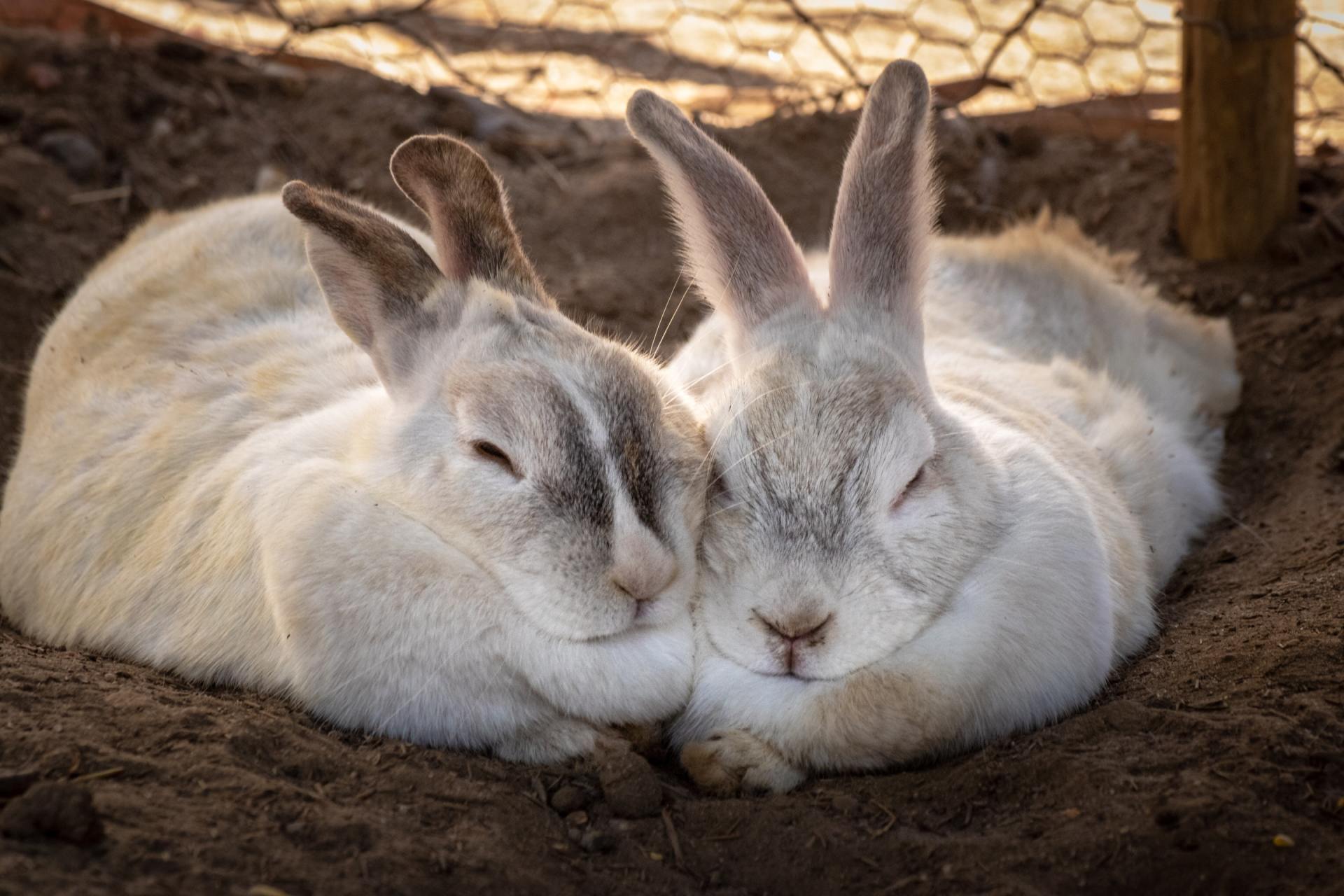The Top Aspects Of Responsible Pet Ownership From A Veterinarian
Owning a pet is more than just providing food and shelter—it’s a lifelong commitment that requires dedication, knowledge, and compassion. Responsible Pet Ownership is the cornerstone of a healthy and happy life for your animal companion. As a veterinarian, I’ve witnessed firsthand the profound impact that informed care can have on a pet’s well-being. In this article, we’ll delve into the top aspects of Responsible Pet Ownership, highlighting essential practices that every pet owner should embrace. From regular veterinary check-ups and proper nutrition to mental stimulation and socialization, these guidelines are crucial for ensuring your pet leads a fulfilling life. Whether you’re a first-time pet owner or looking to enhance your caregiving skills, understanding these key elements will help you foster a stronger bond with your furry friend while promoting their overall health and happiness.
February is Responsible Pet Ownership Month. This topic encompasses many important aspects. Having a pet is fun and beneficial, but there’s a lot more to it than just filling up your furry pal’s food bowls and doling out ear scritches. In this article, a local Middletown, DE veterinarian discusses some of the most important elements of responsible pet ownership.
Responsible Pet Ownership: What Is It?
Adopting an animal means taking responsibility for its life and well-being. That’s a big responsibility for anyone, and it applies to all animals, even the tiniest fish or mouse. Great pet care of course starts with a proper diet and suitable shelter, but that’s just the start. There are many more elements to it!
Here are some of the most important:
- Grooming: Some pets need more help in this area than others. Cats, for example, usually handle this on their own, while dogs require our help. It is not only important to keep your pet’s beauty care up to date so that they look and smell good, but also to keep them comfortable, and to ward off things like parasites and skin problems. That also includes dental care and, for some pets, nail trims, ear care, or even medical grooming.
- Identification: We can’t overstate the importance of microchips and ID tags. These small devices could one day save your pet’s life!
- Enrichment: Just like people, pets also require stimulation. Keeping your furry companion occupied will not only contribute to their happiness, but can also decrease behavioral problems. Bored pets often resort to causing mischief. For example, bored dogs may entertain themselves by chewing on furniture or digging up the garden. And while cats may appear purrfectly content to lounge around doing nothing, they still have a need to pounce, scratch, and explore their surroundings.
- Safety: Even though pets are very intuitive, they don’t know what is safe and what isn’t. A simple mishap, such as playing with or eating something dangerous, can have deadly consequences! You’ll need to carefully petproof your home. The details of this will look different depending on the type of pet you have. For instance, if you have a bird, you’ll have to address things like mirrors and fans, which aren’t a concern for people with cats and dogs. Ask your vet for more information.
That isn’t the only safety concern. Our recommendation is to keep cats indoors and dogs either on leashes or in fenced areas at all times. You’ll also need to be aware of other hazards. These may range from pools to extreme temperatures to candles and fireplaces. Ask your vet for specific advice.
- Comfort: Responsible pet owners ensure that their animal companions are comfortable at all times. (Cats are, of course, adept at getting comfortable in some very odd places and positions, but that’s beside the point.) That entails providing clean shelter or bedding, climate control, and, in some cases, lap space. (Grooming also comes into play here.)
- Commitment: It’s impossible to talk about responsible ownership without mentioning commitment. Adopting an animal means making them a forever promise and committing to caring for them for the rest of their lives.
What Mistakes Should Responsible Pet Owners Avoid?
We always advise against using negative reinforcement to train pets or to deal with behavioral issues, for instance. There are many ‘don’ts’ to being a pet owner. A common pitfall is ignoring or dismissing warning signs of illness, such as vomiting, weight loss, bad breath, or skin irritation.
Here are some other don’ts:
- Overfeeding
- Not providing Veterinary Care
- Lack of Socialization
- Poor or lack of training
- Offering unsafe foods
What Are the Benefits of Visiting My Veterinary Clinic?
Quality pet care involves both the physical and mental well-being of pets. Veterinary care is critical! Every aspect of your veterinarian’s work plays a vital role. Vaccines protect against and prevent serious illnesses like rabies, while parasite control keeps Fido and Fluffy safe from worms, ticks, and other harmful pests. Spay/neuter surgery not only prevents unwanted litters, but also helps manage disruptive behaviors, such as spraying or escape attempts. Your furry friends will also feel calmer and less likely to misbehave after the procedure.
In addition to exams and screenings, you and your veterinarian should monitor your pet’s condition regularly. Contact us right away if you notice anything amiss. Detecting a problem early can be a huge help, as many conditions can be treated or managed more effectively when caught early. Ask your veterinarian to recommend an appointment schedule.
Cat Owner Responsibilities
Felines are generally low maintenance. However, Fluffy does have some specific needs. Scratching posts allow your pint-sized panther to fulfill her natural urge to sharpen those razor sharp claws. Otherwise, she’ll just use your sofa! This may be perceived as misbehavior, but it really isn’t. The need to keep those nails sharp is very instinctive, as it is necessary for wild cats’ survival.
To uphold responsible pet ownership, ensure your feline buddy is equipped with all the necessary kitty essentials: comfortable resting areas, a frequently cleaned litter box, and plenty of toys to keep them entertained. Extras like lap space, catnip, and boxes also contribute positively to their well-being. Moreover, for their safety and health, it is highly advisable to keep your pet indoors.
Dog Owner Responsibilities
Man’s Best Friend is loyal, protective, affectionate, smart, and really, really fun. Fido does need a lot of attention, though. Daily walks are a must, even if you have a yard. Those regular strolls not only help you keep your pet fit and active, they also provide stimulation. Of course, your pet’s ideal workout will depend on his age, size, health, and breed. Some dogs require one hour of vigorous exercise a day. For others, a short walk will be fine.
The importance of training and socialization also cannot be overstated.
For training, you should teach your pooch at least some basic obedience commands, such as Sit, Stay, Come, Heel, and Lay Down.
Socialization is crucial as well. To help your pet grow into a friendly, polite dog, you must socialize Fido while he is still a puppy. (Note: older dogs can be socialized, but it can take some time. You will also need to be realistic. a dog that was not properly socialized will probably never be that happy-go-lucky pup who loves everyone and everything. However, he can learn how to behave.)
Other Pets
Responsible pet ownership involves understanding and meeting the distinct needs of various animals. Exotics, reptiles, birds, rabbits, and pocket pets each require specific care routines. We will explore these in detail in future posts. Ensure that you provide appropriate nutrition, maintain a clean and comfortable habitat, and give plenty of love to your pets. For tailored guidance, consult your Middletown, DE veterinarians.
What Can I Do To Become A More Responsible Pet Owner?
It really boils down to knowledge. Do lots of research, including information about your pet’s specific breed and age. Even if you’ve had animals all your life, there is still a lot to learn! Even spending just a few minutes reading blogs and articles like this one every day can be beneficial.
Also, be sure to consult your Middletown, DE veterinarian regularly about your pet’s health and care. Don’t be afraid to ask questions about your furry friend’s diet, entertainment, and exercise.
The Most Important Part Of Responsible Ownership …
We’re going with an umbrella answer here. TLC: tender, loving, care. While your pet’s health and happiness are both important, you really can’t have one without the other.
Love is the final ingredient to a good pet care regimen. You need to ensure your furry friend knows they are safe and loved. The bond we create with our furry companions can be life-changing, but it needs to be nurtured. Purrs and tail wags are also crucial!
Responsible Pet Ownership: How to Assess Your Readiness for Pet Adoption in 2025
How do I assess if I’m ready for pet ownership?
Assessing readiness for pet ownership involves evaluating several key factors. First, consider the lifelong commitment required, as pets depend on consistent care throughout their lives. Determine if you can provide daily necessities like proper nutrition, grooming, and a safe, comfortable environment. Reflect on your ability to offer regular veterinary care, including vaccinations and check-ups, to maintain their health. Consider whether you have time for training, socialization, and mental stimulation to prevent behavioral issues. Evaluate your home for safety and your willingness to pet-proof it. Lastly, assess your financial readiness, as pets involve ongoing expenses for food, healthcare, and supplies.
What factors should I consider when choosing where to get my pet?
When choosing where to get a pet, consider adopting from reputable shelters or rescue organizations that provide initial veterinary care to ensure the animal is healthy. Evaluate the pet’s specific needs, including breed characteristics, age, and temperament, to ensure a good match with your lifestyle. Ensure the source prioritizes the animal’s well-being, offering proper nutrition and socialization. Confirm that the pet has received necessary vaccinations and parasite control. Understanding the commitment involved is vital; adopting a pet means providing lifelong care, including regular veterinary visits, grooming, and a safe, enriching environment.
What are the financial aspects of pet ownership?
Pet ownership involves various financial responsibilities beyond initial costs, such as purchasing or adopting the pet. Ongoing expenses include a balanced diet, regular veterinary care, including vaccinations, parasite control, and emergency health services, which are significant. Owners must also consider costs for grooming, training, and pet insurance to manage potential health issues. Additionally, unexpected costs can arise from health emergencies or chronic conditions requiring long-term management. Responsible pet ownership demands budgeting for these expenses to ensure pets receive the necessary care to maintain their health and well-being.
How do I ensure I’m a good pet-owning neighbor?
To be a good pet-owning neighbor, establish a routine that includes regular exercise and training to manage your pet’s energy and behavior. Ensure your pets are well-groomed and receive timely veterinary care to prevent health issues from spilling over into communal spaces. Proper identification through microchips and tags is vital. Maintain a clean environment by managing waste responsibly. Lastly, respect community rules about pets in shared spaces and engage in open communication with neighbors to address any concerns about your pets’ behavior.
How can I be involved in the pet owner community?
To engage actively in the pet owner community, start by attending local pet events and joining clubs that reflect your pet’s breed or interests. Networking with fellow pet owners at these gatherings can provide support and valuable care tips. Consider volunteering at animal shelters or participating in community-driven pet welfare initiatives. Online forums and social media groups are also excellent platforms for exchanging advice and experiences, helping you stay informed about the latest in pet care and advocacy. These activities not only benefit your pet but also strengthen your role within the pet community.
Contact us, your local Middletown, DE animal clinic, if you have any questions about the health or care of your pet.



